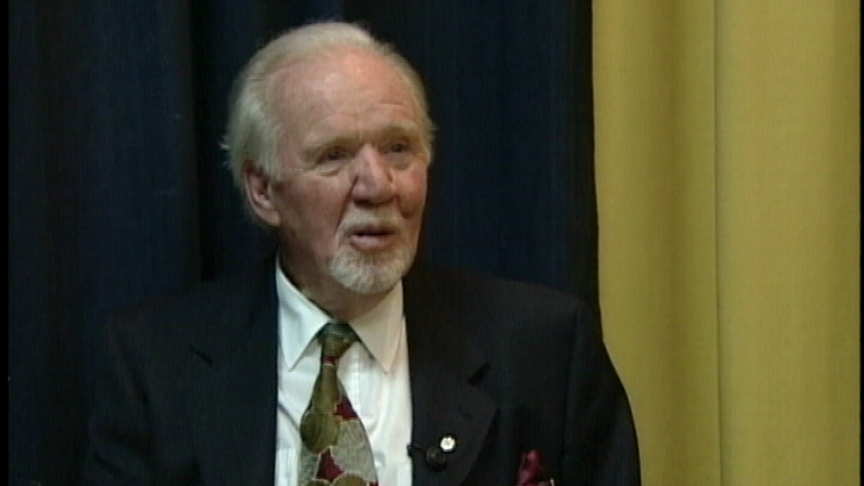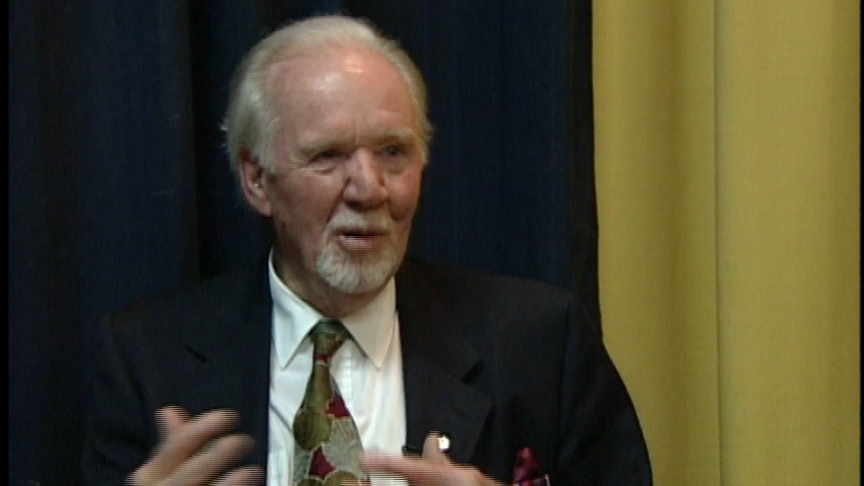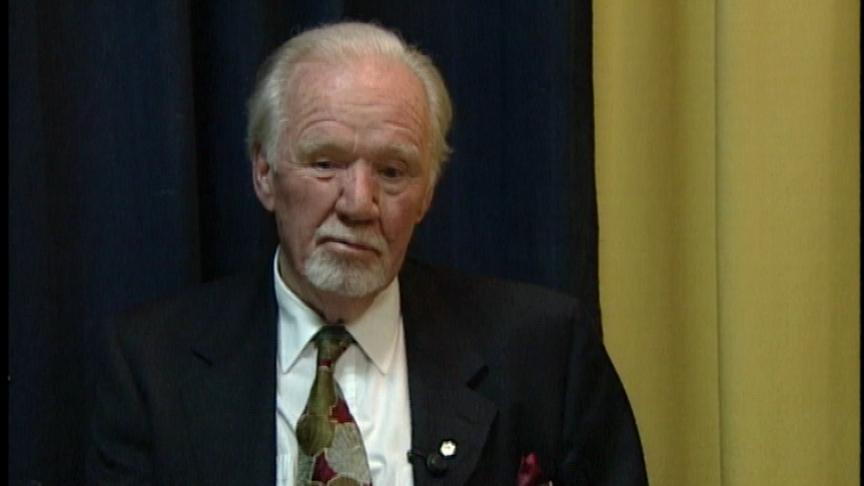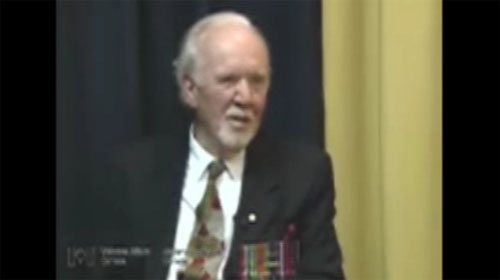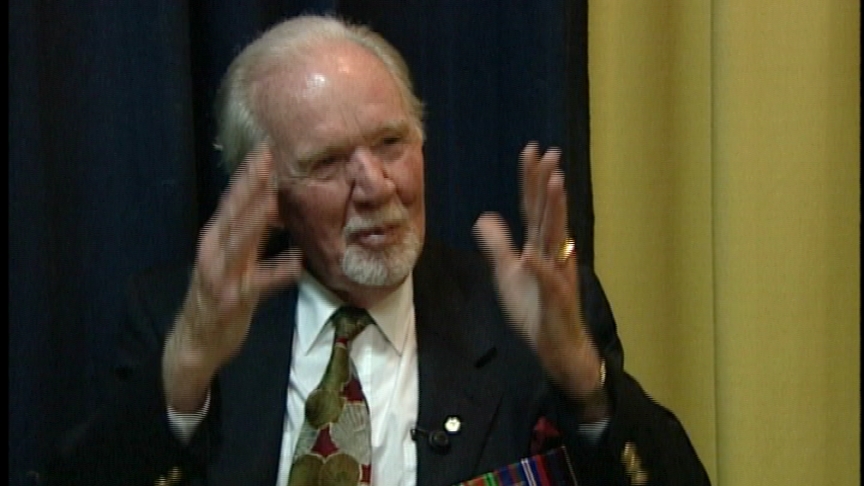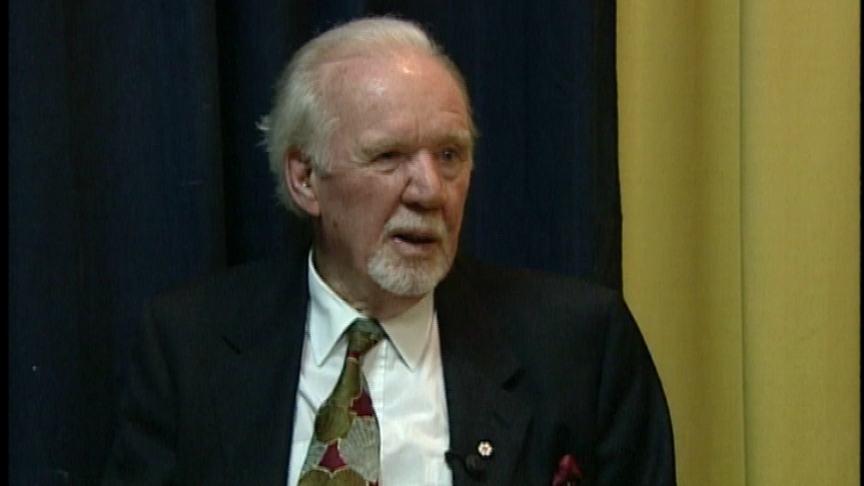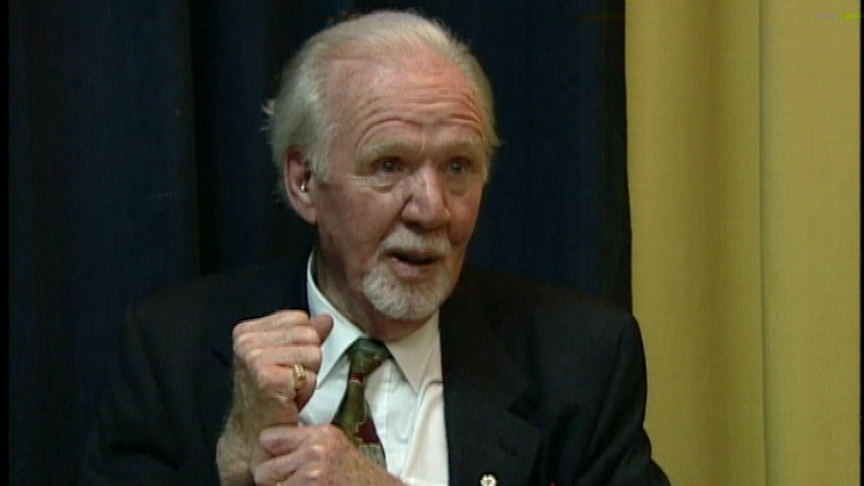Patriotism
Heroes Remember
Patriotism
Transcript
Description
Mr. Purse gives a thought-provoking - and somewhat unexpected - answer to the question of what he would say to today's young Canadians about duty, patriotism and love of country.
Ross Purse
Ross Purse was born in Roland, Manitoba on September 10, 1918. He has one brother and five sisters in what he describes as a close-knit family. Their father died when Ross was just 10 years old. He enlisted with the Winnipeg Grenadiers within hours of Canada declaring war on Germany in September, 1939. Following training in Winnipeg, he was sent to Jamaica in defence of the island and for duty at prisoner of war camps for captured Germans. He returned to Winnipeg and was put aboard a train travelling west, eventually arriving in Vancouver from where he and his comrades sailed for the British colony of Hong Kong.
Meta Data
- Medium:
- Video
- Owner:
- Veterans Affairs Canada
- Duration:
- 03:05
- Person Interviewed:
- Ross Purse
- War, Conflict or Mission:
- Second World War
- Branch:
- Army
- Units/Ship:
- Winnipeg Grenadiers
Related Videos
- Date modified:



